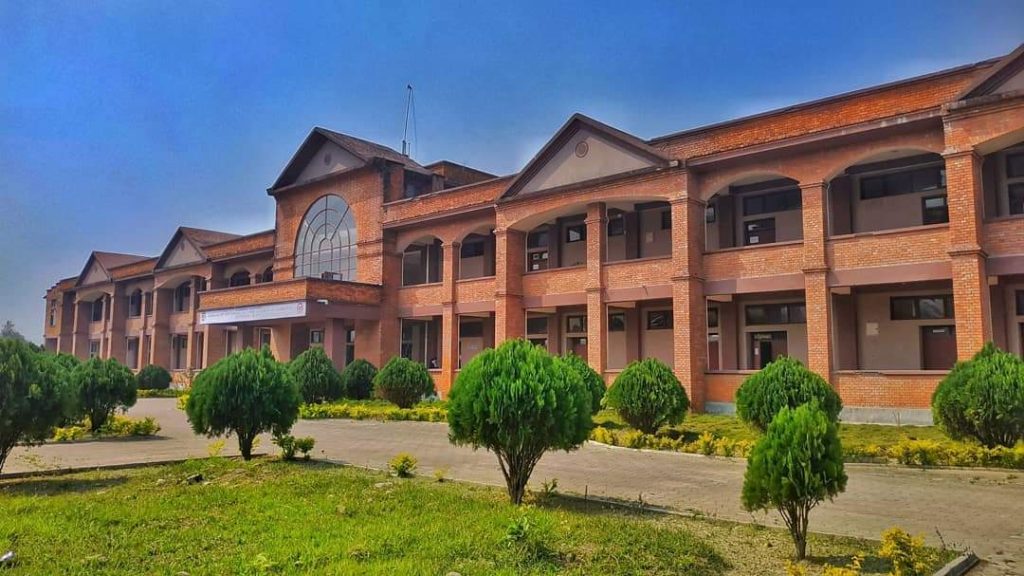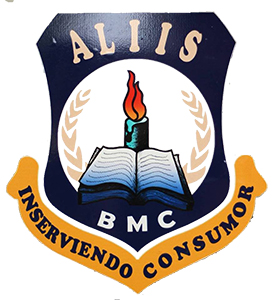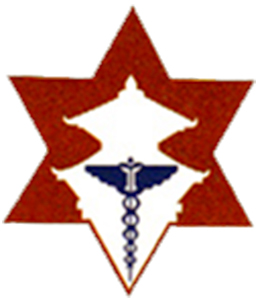Overview
BSc MLT at Purbanchal University School of Health Sciences, Morang, Nepal (affiliated with PU)
The BSc MLT program at Purbanchal University School of Health Sciences (PUSHS), located in Biratnagar, Morang, Nepal, and affiliated with Purbanchal University (PU), is a four-year undergraduate degree dedicated to training skilled medical laboratory technologists.
Nepal's medical lab technology degree offers a detailed curriculum covering clinical laboratory sciences, diagnostic techniques, and laboratory management. It prepares graduates for essential roles in healthcare diagnostics. For students interested in laboratory science, disease diagnosis, and playing a vital role in patient care behind the scenes, the BSc MLT at PUSHS provides a robust educational path.

Curriculum Details
The BSc MLT curriculum at PUSHS is designed to provide a thorough education in medical laboratory science. This four-year program combines theoretical knowledge with extensive practical laboratory training and clinical internships. The curriculum covers various disciplines within laboratory medicine, which is essential for accurate and reliable diagnostic services.
Core Courses
The core courses of the BSc MLT program provide a strong foundation in medical laboratory sciences:
-
Clinical Biochemistry: Covers biochemical principles, metabolic pathways, and laboratory tests used to diagnose and monitor diseases through body fluid analysis.
-
Hematology and Blood Banking involve Studying blood cells, blood disorders, coagulation, and blood transfusion science, including blood group serology and blood component therapy.
-
Medical Microbiology focuses on microorganisms that cause human diseases, their identification, culture, and antimicrobial susceptibility testing, which are crucial for infection diagnosis and control.
-
Clinical Pathology: Covers the laboratory diagnosis of diseases by examining body fluids, tissues, and cells, including urine analysis, body fluid analysis, and cytopathology.
-
Histopathology involves the microscopic examination of tissues to diagnose diseases. It includes tissue processing, staining, and the interpretation of histological slides.
-
Immunology and Serology: Studies the immune system, immune responses, and serological tests used for disease diagnosis and monitoring of immune disorders.
-
Parasitology and Mycology: Covers parasitic and fungal infections, their identification, and diagnostic methods.
-
Molecular Diagnostics: Introduces molecular biology techniques used in laboratory diagnosis, including PCR, DNA sequencing, and genetic testing.
-
Laboratory Management and Quality Assurance: Covers laboratory management principles, quality control, quality assurance, laboratory safety, and regulatory compliance.
-
Instrumentation and Automation in Laboratory: This course focuses on the principles, operation, and maintenance of laboratory instruments and automated analyzers used in clinical laboratories.
-
Research Methodology and Biostatistics: Introduces research methods and statistical analysis relevant to medical laboratory science, enabling evidence-based laboratory practice.
-
Medical Ethics and Professionalism: Covers ethical principles, professional conduct, and legal aspects relevant to medical laboratory practice.
Specializations and Electives
The BSc MLT program at PUSHS provides a broad education across medical laboratory disciplines. While specific specializations are typically pursued at the postgraduate level, students may have opportunities to focus their elective choices and project work in areas of interest, such as:
-
Clinical Microbiology: Focusing on advanced diagnostic microbiology and infection control.
-
Clinical Biochemistry: Concentrating on specialized areas of clinical chemistry and endocrinology.
-
Hematology and Transfusion Medicine: Delving into advanced hematology and blood banking practices.
-
Molecular Diagnostics and Genomics: Exploring cutting-edge molecular techniques in laboratory diagnosis.
This allows for some focused learning within the comprehensive MLT curriculum.
Objectives
The BSc MLT program at PUSHS aims to achieve the following key objectives:
-
To train competent medical laboratory technologists capable of performing accurate and reliable laboratory tests.
-
To develop expertise in various laboratory medicine disciplines, including clinical biochemistry, hematology, microbiology, and histopathology.
-
To prepare graduates to ensure quality control and quality assurance in laboratory procedures and results.
-
To instill ethical principles, professionalism, and safety practices in medical laboratory work.
-
To foster critical thinking, problem-solving, and technical skills essential for laboratory diagnostics.
-
To encourage continuous learning and professional development in the rapidly evolving field of laboratory medicine.
Scope
The scope of the BSc MLT degree is significant, offering diverse medical laboratory careers in healthcare and research sectors in Nepal and internationally. BSc MLT graduates can pursue roles in:
-
Hospitals and Diagnostic Laboratories: Performing routine and specialized laboratory tests in clinical labs of hospitals, diagnostic centers, and clinics.
-
Public Health Laboratories: I work in public health labs and participate in disease surveillance, outbreak investigations, and public health testing.
-
Research Institutions: Participating in biomedical research, clinical trials, and laboratory-based research projects.
-
Blood Banks and Transfusion Services: I work in blood banks and am involved in blood collection, processing, testing, and transfusion services.
-
Pharmaceutical and Biotechnology Industries: Roles in quality control, research and development, and laboratory support in pharmaceutical and biotech companies.
-
Veterinary Laboratories: Applying laboratory skills in animal health diagnostics in veterinary labs.
-
Academia and Education: With further education, pursuing careers in teaching medical laboratory technology and related disciplines.
Learning Outcomes
Upon successful completion of the BSc MLT program, graduates will be able to:
-
Apply comprehensive knowledge of medical laboratory sciences in diagnostic testing and analysis.
-
Perform laboratory tests accurately and reliably in clinical biochemistry, hematology, microbiology, histopathology, and other disciplines.
-
Ensure quality control and quality assurance in laboratory procedures and data.
-
Operate and maintain laboratory instruments and automated systems effectively.
-
Interpret laboratory results and correlate them with clinical conditions.
-
Adhere to laboratory safety protocols and ethical guidelines in laboratory practice.
-
Communicate practically with healthcare professionals and laboratory staff.
-
Engage in continuous professional development and evidence-based laboratory practice.
Skill Development Modules
The BSc MLT program at PUSHS incorporates specific modules and strategies for medical laboratory skill development:
-
Clinical Biochemistry Labs: Hands-on training in performing biochemical tests, operating analyzers, and quality control procedures.
-
Hematology and Blood Banking Labs: Practical experience in blood cell analysis, coagulation studies, blood grouping, and transfusion procedures.
-
Microbiology Labs: Training in microbial culture, identification, staining techniques, and antimicrobial susceptibility testing.
-
Histopathology Labs: Practical skills in tissue processing, sectioning, staining, and microscopic examination of histological slides.
-
Clinical Laboratory Rotations: Internships in hospital and diagnostic laboratories to gain real-world laboratory experience and clinical exposure.
-
Instrumentation Workshops: Training on operating, maintaining, and troubleshooting laboratory instruments.
-
Simulation-Based Training: Use simulations to practice laboratory procedures and handle critical situations.
Teaching Methodology
PUSHS employs varied teaching methods in the BSc MLT program to facilitate effective learning and practical skill acquisition:
-
Interactive Lectures and Seminars: Engaging lectures promoting student participation and critical discussion of laboratory concepts.
-
Extensive Laboratory Practical Sessions: Hands-on laboratory work to develop technical skills and practical competence.
-
Demonstrations and Workshops: Live demonstrations of laboratory procedures and focused workshops on specific techniques.
-
Small Group Tutorials and Discussions: Facilitate deeper understanding and problem-solving in laboratory diagnostics.
-
Case Studies and Clinical Correlations: Analysis of clinical cases and correlation of laboratory findings with clinical conditions.
-
Presentations and Journal Clubs: Student presentations on laboratory topics and critical appraisal of research articles.
-
Clinical Laboratory Internships: Immersive clinical rotations in real laboratory settings for practical experience.
Faculty Expertise
The BSc MLT program faculty at PUSHS includes:
-
Clinical Biochemists: Experts in clinical chemistry, metabolic disorders, and biochemical diagnostics.
-
Hematologists and Transfusion Medicine Specialists: Professionals with expertise in blood disorders, hematology, and blood banking.
-
Medical Microbiologists: Specialists in infectious diseases, diagnostic microbiology, and infection control.
-
Histopathologists and Cytopathologists: Experts in tissue pathology, histopathology techniques, and cytological diagnosis.
-
Immunologists and Serologists: Professionals with expertise in immunology and serological diagnostic methods.
-
Molecular Biologists and Geneticists: Specialists in molecular diagnostics and genetic testing.
-
Experienced Medical Laboratory Technologists: Practicing technologists with extensive laboratory experience and expertise.
Admission Requirements
Admission to the BSc MLT program at PUSHS typically requires:
-
Completing 10+2 or equivalent education in Physics, Chemistry, and Biology.
-
Meeting minimum academic criteria as set by Purbanchal University and PUSHS.
-
This may include an entrance examination conducted by PU or PUSHS.
-
Specific requirements should be verified from the official admission announcements.
Career Opportunities
BSc MLT graduates have varied and essential medical laboratory career opportunities:
-
Medical Laboratory Technologist in Hospitals: Performing diagnostic tests in hospital labs.
-
Clinical Laboratory Scientist in Diagnostic Centers: Working in private diagnostic laboratories and clinics.
-
Public Health Laboratory Technologist: In public health labs, involved in disease surveillance and public health testing.
-
Research Laboratory Technician: In biomedical research institutions and laboratories.
-
Blood Bank Technologist: In blood banks and transfusion services.
-
Laboratory Manager/Supervisor (with experience): Managing and supervising clinical laboratories.
-
Medical Laboratory Equipment Sales and Support: Roles in companies selling and servicing laboratory equipment.
Student Life and Extracurricular Activities
Student life in BSc MLT at PUSHS includes:
-
Medical Laboratory Science Club: Student organization focused on laboratory medicine, seminars, and workshops.
-
Health Awareness Campaigns: Participation in health education and diagnostic awareness programs.
-
Laboratory Skills Workshops: Focused workshops to enhance specific laboratory techniques.
-
Research Projects and Presentations: Opportunities for student research in medical laboratory science.
-
Campus Environment: Supportive academic community and focused learning atmosphere.
Scholarships and Financial Aid
Information on BSc MLT scholarships and financial aid at PUSHS can be obtained directly from the institution. Students interested in medical laboratory technology are encouraged to inquire about the following:
-
Merit Scholarships for MLT Students: Recognizing academic excellence in MLT studies.
-
Need-Based Financial Aid for MLT Education: Supporting students with financial constraints.
-
Healthcare Sector Scholarships: Potentially offered by healthcare organizations or government initiatives.
Why Choose This Course?
Choosing the BSc MLT program at PUSHS offers:
-
Comprehensive Medical Laboratory Education: Broad and detailed curriculum in medical laboratory sciences.
-
Extensive Practical Training: Hands-on laboratory work and clinical internships for skill development.
-
Essential Healthcare Profession: BSc MLT graduates play a vital role in disease diagnosis and patient care.
-
Dedicated Faculty: Experienced faculty with expertise in medical laboratory disciplines.
-
Career Stability and Demand: There is a high demand for medical laboratory technologists in the healthcare sector.
Why Choose This College?
PUSHS, as a leading MLT college in Nepal and a reputable health sciences institution in Biratnagar, provides the following:
-
Focused MLT Program: Dedicated to medical laboratory technology education.
-
Well-Equipped Labs and Facilities: Modern laboratory infrastructure for practical training.
-
Supportive Learning Environment: Engaging campus and committed faculty support.
-
Affiliation with Purbanchal University: Recognized university affiliation and academic standards.
-
Strategic Location: Access to healthcare facilities and diagnostic labs in eastern Nepal.
Conclusion
The BSc MLT program at Purbanchal University School of Health Sciences is a comprehensive, career-oriented degree designed to develop skilled and ethical medical laboratory technologists. Located in Biratnagar, Nepal, and affiliated with Purbanchal University, PUSHS offers a robust curriculum, extensive practical training, and a supportive learning environment. For students passionate about medical laboratory careers and seeking quality medical laboratory technology education in Nepal, the BSc MLT program at PUSHS is an outstanding choice, preparing them for essential roles in healthcare diagnostics and patient care.
Contact Purbanchal University School of Health Sciences's administrative office for detailed information on the BSc in Medical Laboratory Technology (BSc MLT) course, including fees, scholarships, facilities, counseling, eligibility criteria, etc.
















